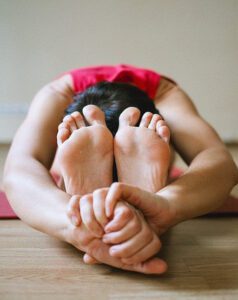Resting and recovery is an essential part of bodybuilding. Lifting weights will only help our muscles grow if we give our bodies time to recover. The amount of time it takes for your muscles to recover from exercise depends on your fitness levels and the difficulty of your workout.
In this article I am going to tell you the importance of rest and recovery in bodybuilding and how to maximize muscle recovery, helping you get the best results you can from your workouts.
The volume, intensity, and duration of your workout all play a role in determining how much recovery you need.
After a relatively light workout, your muscles may be able to recover in 24 hours, whereas a more challenging workout might take two to three days. Very intense workouts might take even longer.
Recovery is an essential component in the complete muscle-building process. Make no mistake your training matters, but your efforts in the gym can be enhanced by what you do with the other 22-23 hours of your day.
Here are 7 tips to speed up and maximize recovery:
Eat Healthy and Nutritious Foods!
Physical activity uses a lot of energy. When you exercise, the proteins that make up your muscle fibers become damaged, which makes eating protein after a workout essential. This can help give your body the raw material it needs to repair the muscle damage.
You should consume a balanced meal containing carbohydrates, good fats and protein within 2 hours of working out. The meal should be healthy and nutritious. An overall healthy diet can ensure that you don’t develop any nutrient deficiencies that may impair your muscles’ ability to recover.
Increase Sleep Quality
Getting sufficient sleep is easily one of the most effective ways to recover from any form or degree of physical activity. While you sleep, amazing things are taking place in your body.
Optimal sleep is essential for anyone who exercises regularly. During sleep, your body produces Growth Hormone (GH) which is largely responsible for tissue growth and repair.
Experts say that it is crucial to have at least 7 – 9 hours of sleep per night of you are looking to change your body composition, increase muscle mass, and to enable you to train again the next day.
Stay Hydrated
Re hydrating after a workout is key to recovery, during exercise you lose a lot of fluid and you should be replacing it both during and after exercise. Filling up after exercise is an easy way to boost your recovery.
Without proper hydration, it’s difficult for your body to normalize blood pressure and stabilize your heartbeat. Water helps thin the blood and move nutrients and oxygen through the body.
The human body is made up of mostly water, so the proper balance between water and electrolytes is crucial to how our systems function, including nerves and muscles.
Do Not Overtrain
Over-training can lower your fitness level, negatively affect your performance add cause injuries. You should work out within your limits and allow enough recovery time between workouts to avoid this.
Daily intense training and inadequate recovery between training sessions can have a negative effect on the body. It can lead to slower recovery, and can work directly against your fitness goals.
Warming Up and Cooling Down

Warming up increases your heart rate and therefore your blood flow. Heightened blood flow to muscles means an increase in oxygen delivery to tissues and remove carbon dioxide, a harmful toxin for muscle performance. Not warming up could mean, your body will take longer to recover after exercise and could also cause serious injury.
Cooling down speeds up recovery after a workout and reduces soreness. It’s good to stretch when you’re cooling down because your limbs, muscles and joints are still warm. Stretching can help reduce the build up of lactic acid, which can lead to muscles cramping and stiffness.
Massage
Having a massage after a workout not only feels good but can be beneficial to help the bodies recovery process, as it increases circulation and blood flow. This movement attracts oxygen to the muscles and washes away toxins, resulting in a decrease of pain and soreness,
Recovery Supplements
There are many types of recovery supplements. They can be taken on their own, stacked, or in an all-in-one recovery blend. They are designed to replenish your muscles after a tough workout, and are optimized for recovery and muscle growth.
Whey protein is the most common recovery supplement as protein provides the ability to heal, repair, and grow our muscles. Providing a source of protein made up of all the essential amino acids has been proven for effective recovery.
BCAAs help move protein balance to rebuild muscle tissue and slow muscle breakdown. They are part of the “essential” amino acid group, which means they are essential to get from our diet
Creatine is another good recovery supplement and has been shown to be helpful in optimizing creatine stores to speed recovery after workouts. Using creatine prepares your muscles to be strong and powerful for your next workout.
L–glutamine is another amino acid that our body benefits from getting in our diet. While all of these supplements help to speed recovery, L–glutamine is known for reducing muscle soreness, which allows you to push harder during your next workout.
During a workout we lose electrolytes and it is important to replace electrolytes them. Electrolytes are crucial for many of the processes that keep us alive including, our hearts beating, and our lungs working. If you sweat a lot during a work out,
make sure electrolytes are included as part of your recovery.
How important is muscle recovery?
Exercise puts a lot of stress on your body, which causes your muscles to tear.
It is extremely important to let your muscles fully recover between each workout. When we rest, and especially when we sleep, our muscles repair, leading to muscle growth.
Conclusion
You can now use all the techniques and tips above to improve your muscle recovery, and speed it up in-between workouts. There are other ways to improve recovery speed, but these are the main ways I use to personally speed up my own recovery.
If you need have any questions regarding muscle recover or how to implement different techniques into your routine. Let me know in the comments sections below. I have a lot of experience in the subject and am more than happy to help you out.

